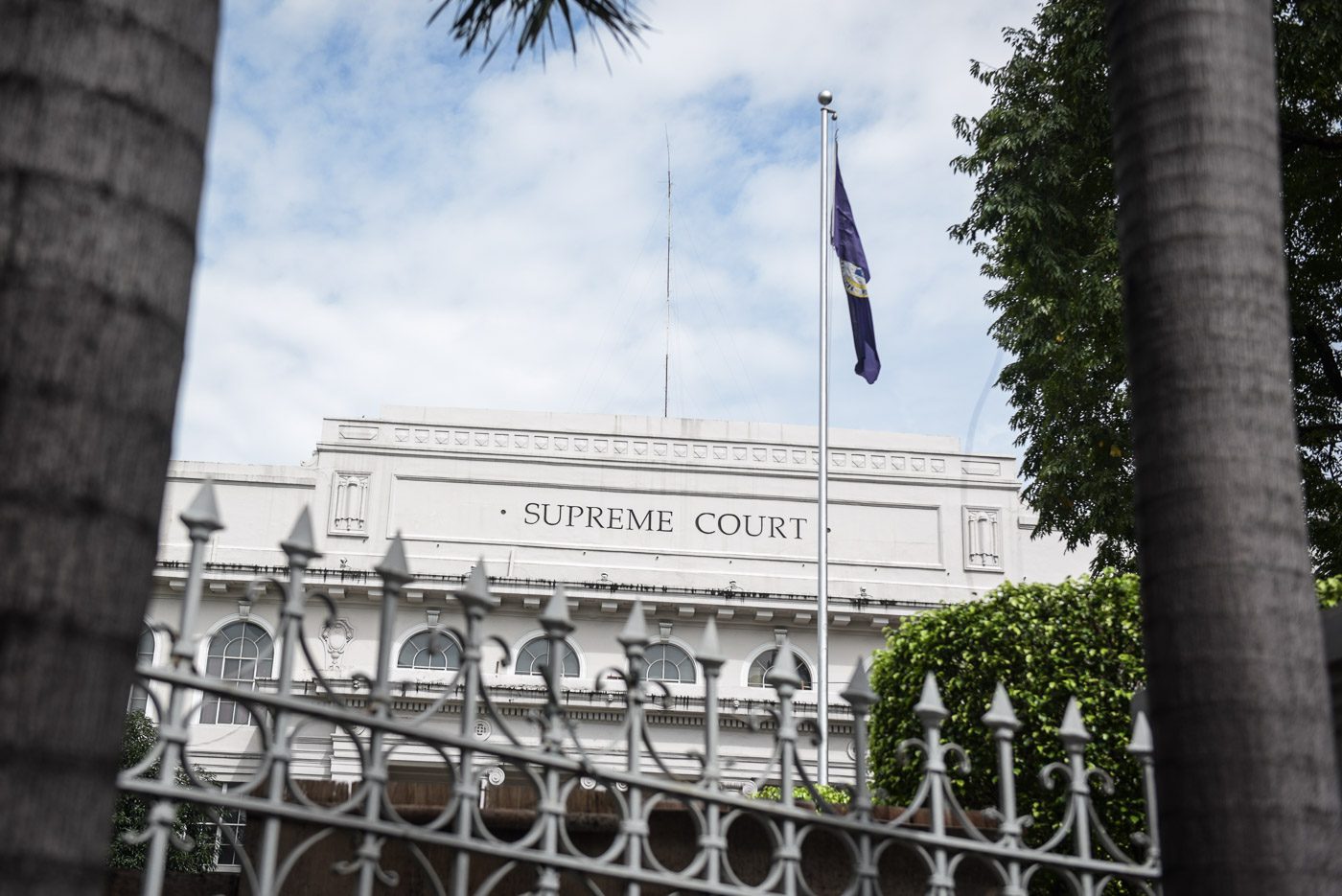SUMMARY
This is AI generated summarization, which may have errors. For context, always refer to the full article.

MANILA, Philippines – The Supreme Court has junked the petition challenging the constitutionality of the now-expired Bayanihan to heal as one Act, or President Rodrigo Duterte’s special powers to respond to the coronavirus pandemic.
“The Court dismissed the Petition as it failed to show grave abuse of discretion committed by the respondents,” said Supreme Court spokesperson Brian Keith Hosaka on Wednesday, July 1.
Hosaka said there were two dissenters – Associate Justices Marvic Leonen and Samuel Gaerlan. It was not clear whether all 14 justices (one vacancy due to retirement) were able to vote. The ponente is Associate Justice Alexander Gesmundo.
The petition was filed on May 26 by lawyer Jaime Ibañez, former dean of the Laguna State Polytechnic University law school.
The full resolution was not made available as of yet.
The petition
The petition was only 9 pages long, arguing that the law is void for granting Duterte legislative power.
When the law was being passed by Congress in late March, constitutional experts only questioned the budgetary provisions of the bill. These questionable provisions were later removed. The problem with the law, according to experts, was that it was unnecessary as emergency budgetary powers are already provided for by the procurement law.
Later, experts also found a constitutional issue with a last-minute provision to punish coronavirus fake news, for infringing on freedom of speech.
But the special powers itself find basis on Section 23(2), Article VI of the Constitution that says “in times of war or other national emergency, the Congress may, by law, authorize the President, for a limited period and subject to such restrictions as it may prescribe, to exercise powers necessary and proper to carry out a declared national policy.”
What the petition took issue with was the law’s lengthy title that ends with “for other purposes.”
“The phrase ‘for other purposes’ as used in the law constitute an undue delegation of power and is complete nullity, which can not [be] used to cure the constitutional infirmity in issuing the proclamations as mentioned,” the petition said.
The petition said Duterte’s succeeding proclamations as well as the guidelines later issued by the Inter-Agency Task Force (IATF) are void because the law which they were based on is also void.
“The IATF has no power to define the law on quarantine, sets its own parameters and restrictions and to even invent the Modified Enhanced Community Quarantine according to its own bizarre definition,” the petition said.
Bill of Rights
The Bill of Rights was also invoked, as the petition said the quarantine measures and isolation rules violated the equal protection clause of citizens, as well as violated their constitutional right to travel.
Section 6 of the Bill of Rights provides that the right to travel may be impaired “in the interest of national security, public safety, or public health, as may be provided by law.”
“It is never the meaning and intent of the framers of the Constitution to self-destruct, putting to naught the person’s liberty under the bill of rights and let him be mentally perturbed and lose his work for a long period of time in the name of Enhanced Community Quarantine,” said the petition.
The isolation of persons under investigation and persons under monitoring violates equal protection clause, according to the petition. (PUIs and PUMs are terms now discarded by government)
Generally, equal protection clause will not apply if there is a substantial distinction between the two groups of people – in this case the PUIs and PUMs and the presumed healthy people.
The petition tried to invoke Section 18(2) of the Bill of Rights but did not elaborate.
Section 18(2) says: “No involuntary servitude in any form shall exist except as a punishment for a crime whereof the party shall have been duly convicted.”
“The law may be fair on its face, and noble in its purpose – but it is an altogether specie of slavery if this country is put to a dubious community quarantine coming as it does from an operation of an unconstitutional law and emanating from IATF’s invalid delegated legislative power,” said the petition. – Rappler.com
Add a comment
How does this make you feel?
There are no comments yet. Add your comment to start the conversation.